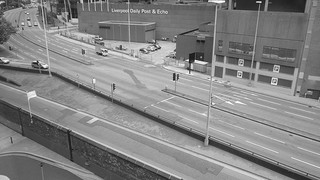As the dust settles after the ‘shocking blow’ of the closure of the Liverpool Post, former editors and staff at the historic title have been paying their respects and considering its remarkable past.
Current publisher Trinity Mirror announced earlier this week that the 158-year-old regional would be ceasing publication on December 19th as it was no longer sustainable. The website would come to an end on the same date. It’s a move that was described by the National Union of Journalists as a ‘shocking blow to the city’.
But being economically unviable is something that’s far from a new situation for the newspaper according to Ian Hamilton Fazey who worked at the then Liverpool Daily Post for three years in the early 1970s before going on to be appointed general manager of Liverpool Daily Post & Echo.
“In the days of hot metal, in the 1970s, its existence was precarious and it was on the brink all the time. When the new technology came along in the 1980s it meant it could continue because of a reduced cost base.”
And he said it was always the strength, and dominance in its market, of the North Wales edition that meant the title had managed to survive for a further forty years – in no small part because of the requirement to publish statutory notices in Welsh.
“Although it’s sad, it was fairly inevitable. All those regional mornings which were viable in the 1970s are in decline,” he concluded, remembering a time when the regionals would band together to fund sending a reporter to cover major international events across their titles.
It’s believed local bosses fought pressure to close the Post from TM headquarters in Canary Wharf back in 2009. The paper, based in Old Hall Street, then went from daily to weekly in January 2012, and many observers felt then that the writing was on the wall.
With regret I have to tell you that the Liverpool Post newspaper is to close after more than 158 years.
— Mark_Thomas (@Mark_Thomas) December 10, 2013
A proud past
During his time at Liverpool, Fazey also wrote a series about its illustrious history during which time he had access to all the archives.
He discovered that the title earned its place as one of the UK’s first penny papers in 1855 by a whisker as it was quickly followed by others keen to produce a publication affordable to everyday people. Until that point, taxation had meant newspapers were products only the rich could afford.
It was this sense of history and pride which former night editor David Banks (1992-1999) recalls with fondness after hearing this week’s announcement.
“It’s terribly sad, I grew up reading the Daily Post with my dad being on Merseyside. It was, and is still, a great paper. No doubt it won’t be the last closure in these years, but it is the first well-known, can I say, iconic even, title to go.
“The Liverpool Daily Post was a watchword in regional morning journalism.”









